 Loading…
Loading…
December 2022
 Loading…
Loading…

Sustained Health Initiatives of the Philippines
 Loading…
Loading…
The third HIV Adult Primary Care Skills Upbuilding Workshop will be on this November 26-27, 2018, at La Verti Residences, Pasay–a two-day workshop of collaborative and interactive education on expertise on HIV primary care.
Find further details and register at tinyurl.com/SHIPHIVPrimaryCareMay2019.
Email: jragragio@ship.ph
Viber/WhatsApp: 0917-880-0718.
Join the HIV Adult Primary Care Skills Upbuilding Workshop this 2019!
READ NEXT: SHIP’s PROGRAMS

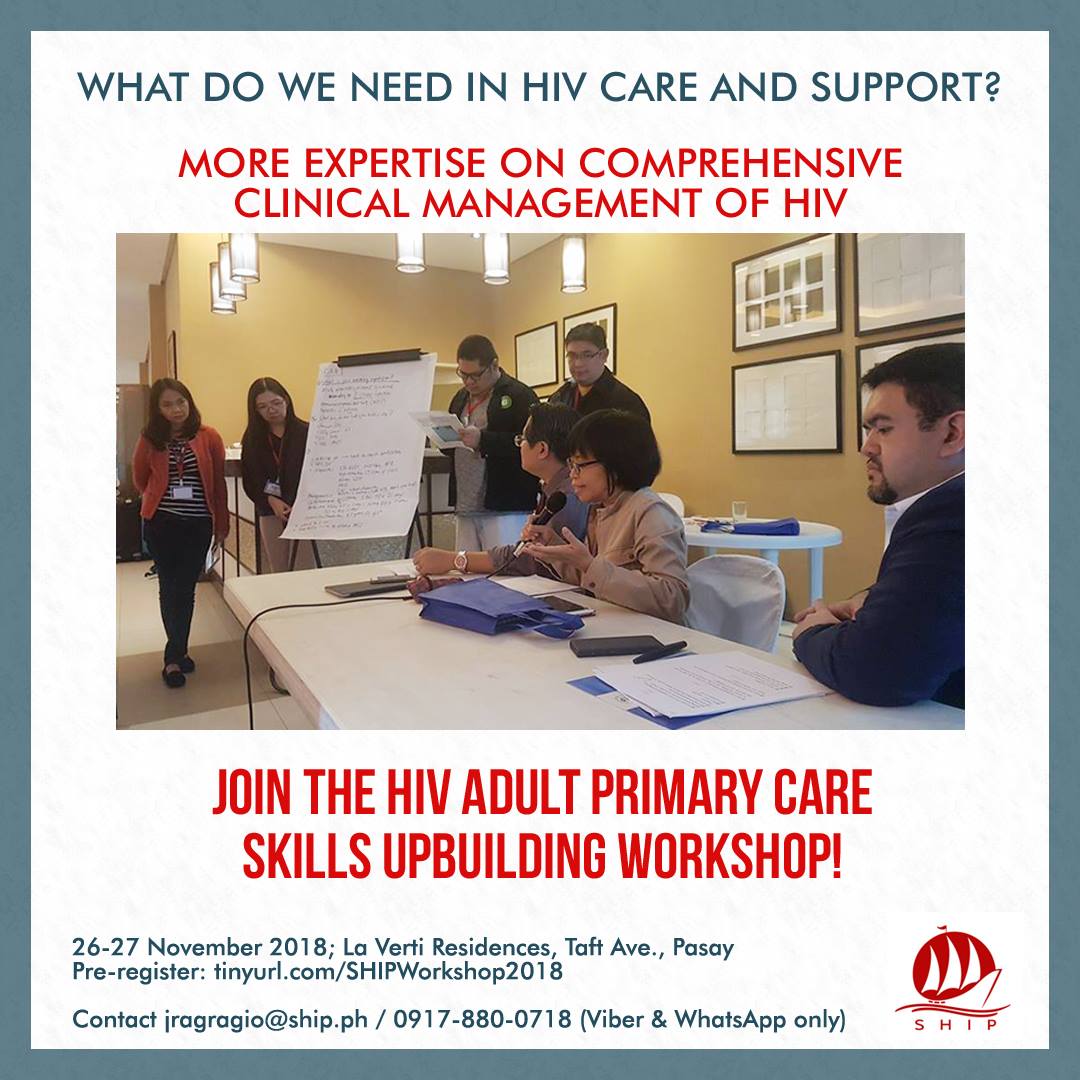
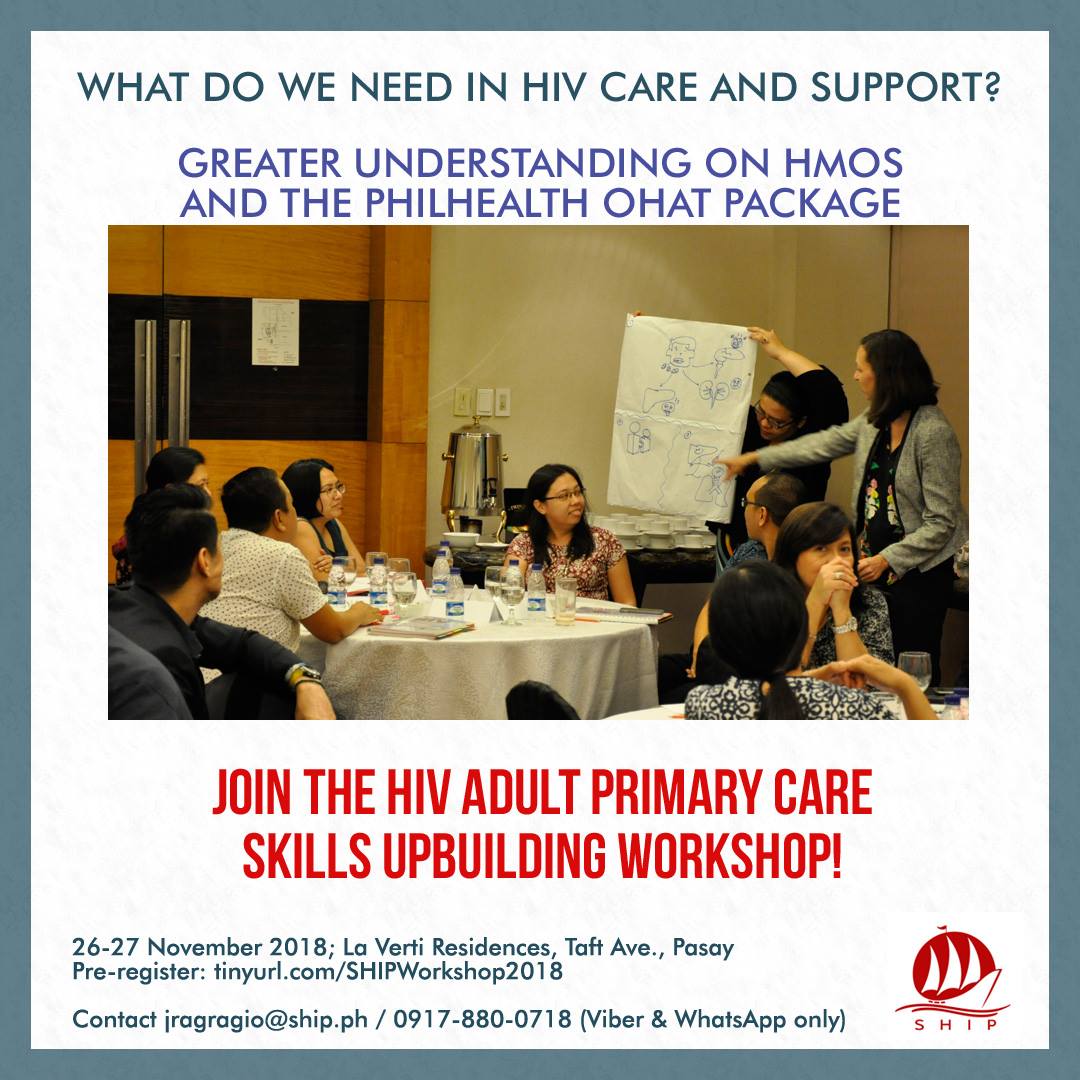


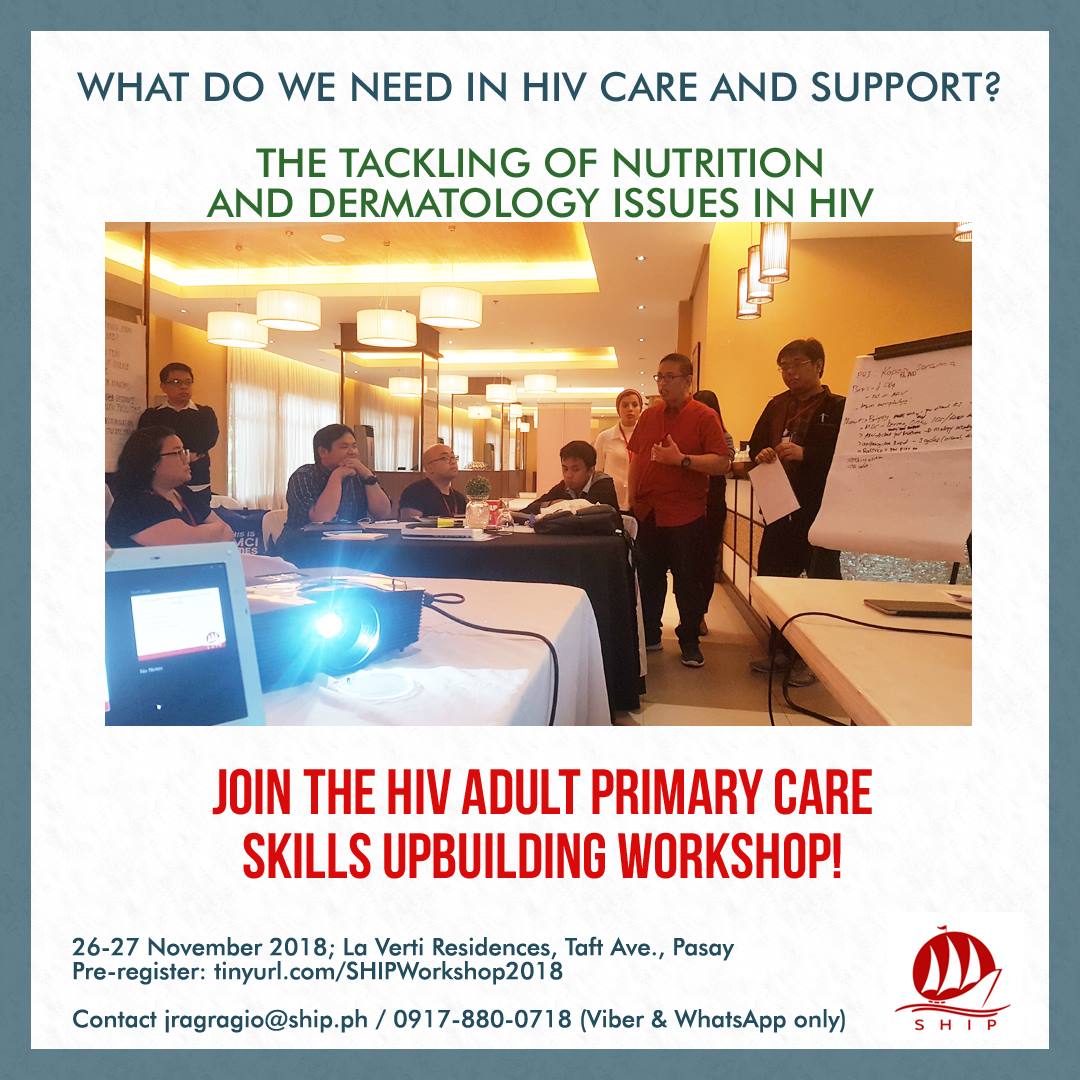
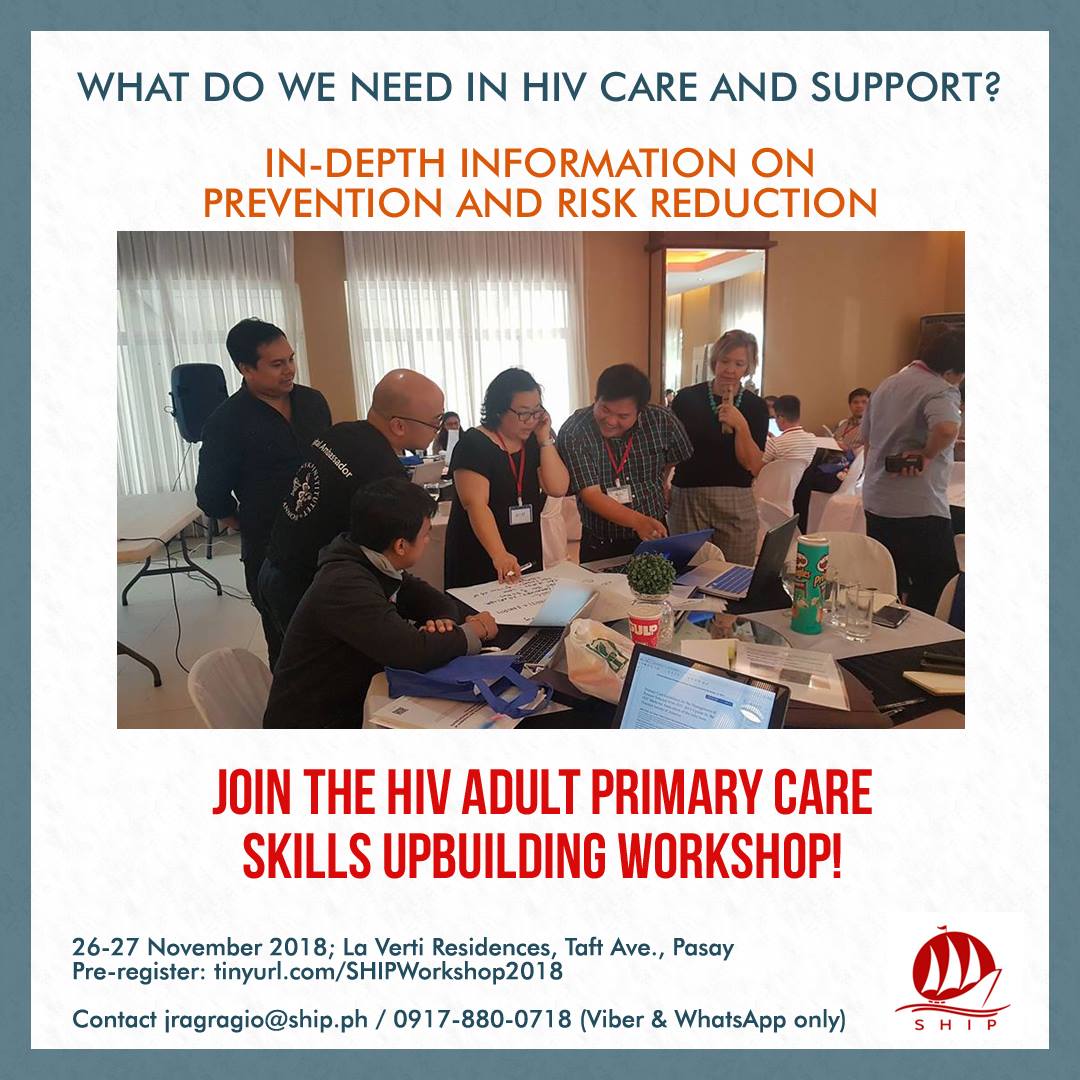
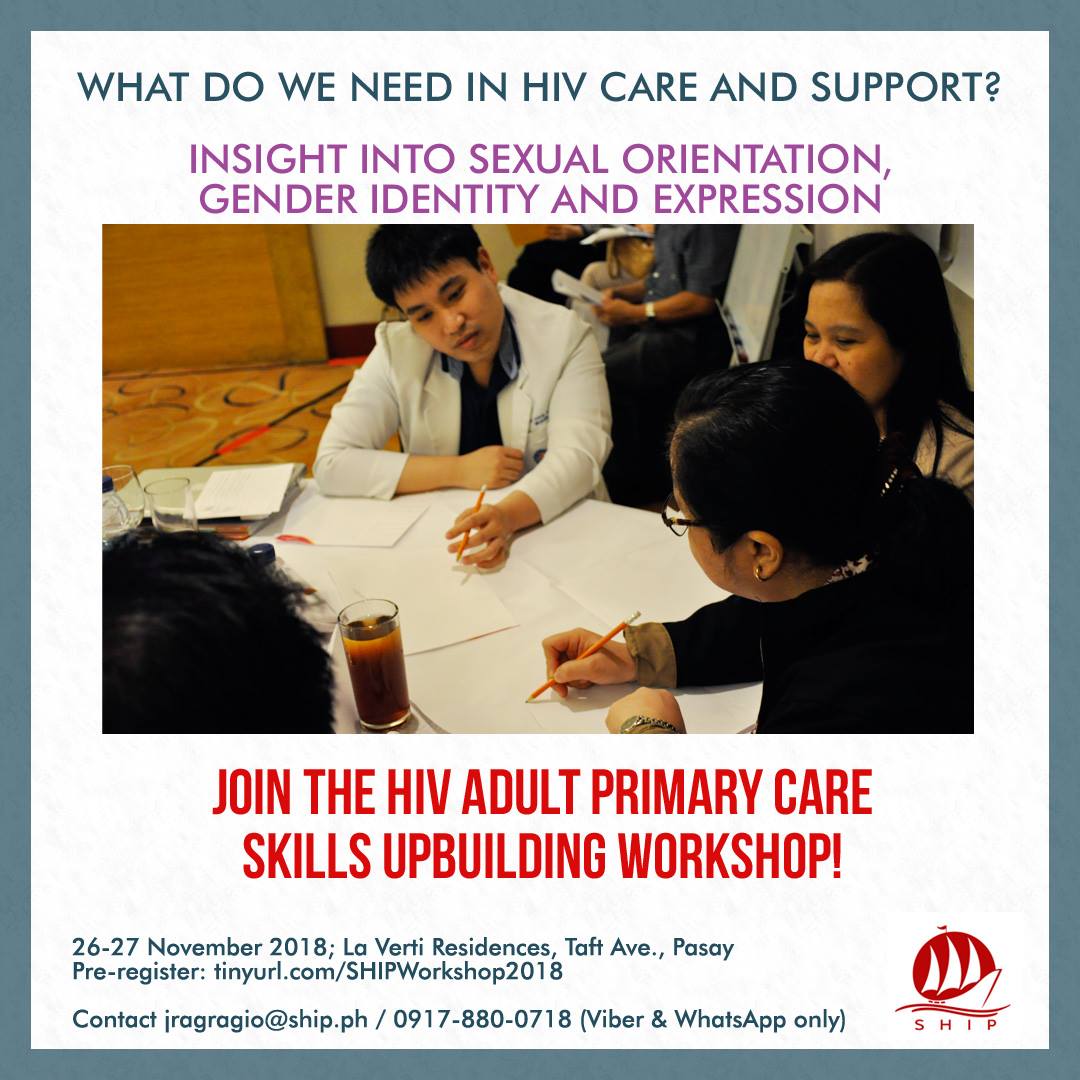
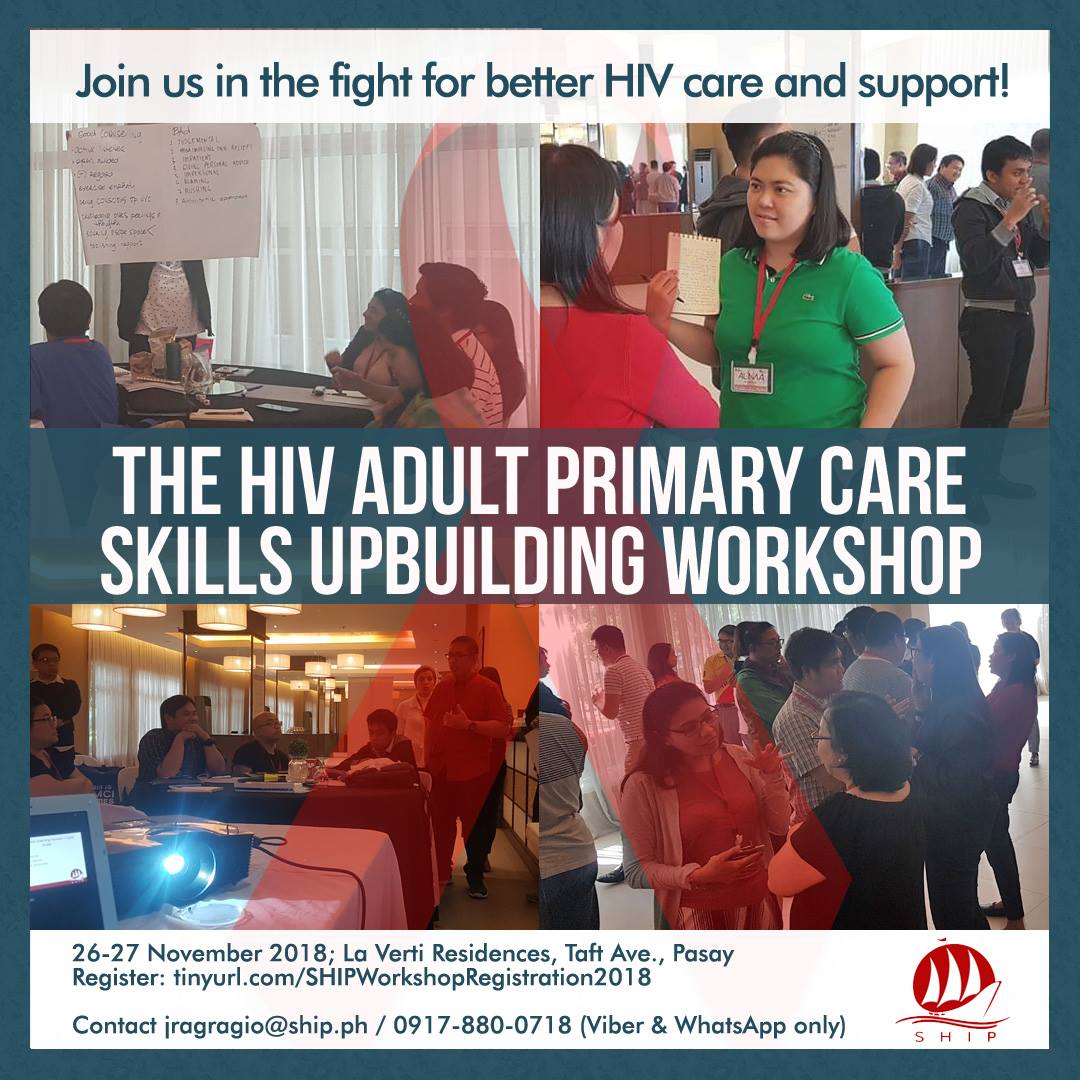
As the total number of people infected with human immunodeficiency virus (HIV) in the Philippines could reach 55,000 by December 2016, a comprehensive HIV Disease Management Program called “Connect for Life” was launched in a bid to reduce the burden of the disease that infects 26 Filipinos every day.
“Connect for life is a comprehensive program that aims to improve the lives of HIV patients by creating a more immediate link between them and their doctors through an interactive mobile application with three main functions,” said Dr. Erwin Benedicto of Johnson and Johnson during the launch which was held in Makati City yesterday.
“First, it helps patients with their adherence of their treatment with regular and personalized medication. Second, it acts as a personal healthcare provider by analyzing patients’ important symptoms to explain if it’s serious or unexpected side effect of medication; and by providing corresponding advice on what to do. And finally, it helps improve the overall quality of life of the patients with health tips on a wide variety of topics relevant to each person,” he stated.
The program, developed by Johnson & Johnson and Sustained Health Initiatives of the Philippines (SHIP), aims to significantly reduce the burden of HIV by improving understanding of the attitudes people hold towards HIV and the factors that affect patients’ adherence to their medicines, as well as how well treatments work and the availability of ongoing care.
Published November 29, 2016, 10:00 PM
by Charina Clarisse L. Echaluce
A specialist has warned human immunodeficiency virus or HIV patients to do their anti-retroviral therapy regularly or run the risk of developing resistance to the treatment.
Dr. Edsel Salvaña, director at the National Institute of Molecular Biology and Biotechnology, National Institutes of Health of the University of the Philippines Manila, noted that like bacteria, the human immunodeficiency virus becomes resistant to drugs.
Spelling out what occurs when an HIV patient fails to take his/her medication regularly, Salvaña said once a patient develops resistance to one ART, his/her doctor will have to try another set of ART. Since there are only about seven ARTs available in the country — provided by the Department of Health — a patient will eventually run out of treatment that could work for him/her, he said.
ART, the combination of several anti-retroviral medicines that slow down the multiplication of HIV in the body, is not a direct cure for HIV. It, however, controls a patient’s viral load from increasing, and instead brings that load down so the patient’s immune system could be strengthened. When this happens, a patient could be protected from opportunistic infections that could weaken his/her system. That protection is the reason why the patient does not develop full-blown AIDS (acquired immuno-deficiency syndrome) in a span of 10 years. Once taken, ART should be taken for life.
ART actually eroded the scenario 30 years ago when AIDS was first pictured out and understood in the country, Salvaña said.
Back then, people who acquired the virus had to prepare themselves to face the reality of dying.
“But now, 30 years after, here is a treatment through ARTs wherein once you start treatment you are alive (provided the patient regularly takes his/her medication). Who knows? Years after, a cure might really come,” he said, reiterating that to get the full benefit of ARTs, patients should never disregard the regular taking of their medication.
Meanwhile, as an intervention, Johnson and Johnson (Philippines) recently partnered with the Sustained Health Initiatives of the Philippines, a nongovernmental organization, in coming up with a system to track down HIV patients taking ARTs at the Philippine General Hospital.
Under the partnership, the health providers, through the SHIP, will operate a system that would find out how compliant the patients are in taking their medication, educate them, and aid them in the management of their HIV for better outcomes.
Under the system, called “Connect for Life” and launched Nov. 29, patients have a virtual assistant that calls them to remind them that it is time to take their medicine; responds if there is a problem; knows how compliant the patients are; and motivates them to practice a healthy lifestyle.*PNA
http://visayandailystar.com/2016/December/09/people.htm